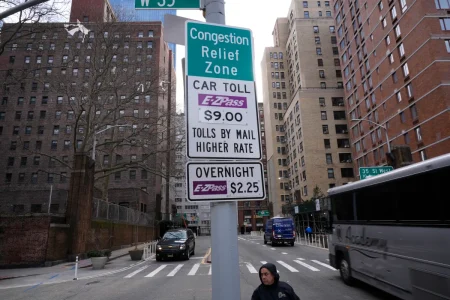This news article reports on a federal judge’s decision to temporarily block the implementation of an executive order signed by former President Donald Trump. The order directed prison officials to transfer transgender women housed in women’s facilities to men’s facilities and to terminate their access to hormone therapy. U.S. District Judge Royce Lamberth, a Reagan appointee, issued the temporary restraining order (TRO) in response to a lawsuit filed on behalf of three transgender women affected by the order. The lawsuit argues that the executive order is discriminatory against transgender individuals and violates their constitutional rights. The judge’s decision, made just hours after a hearing on the matter, specifically cites the Eighth Amendment of the U.S. Constitution, which prohibits cruel and unusual punishment, as the basis for the TRO.
The Eighth Amendment’s prohibition against cruel and unusual punishment is a cornerstone of American jurisprudence, protecting individuals from excessive or inhumane treatment while in custody. This includes not only physical punishments but also conditions of confinement that pose a substantial risk of serious harm. In this case, the plaintiffs argued that transferring them to men’s facilities and terminating their hormone therapy constituted cruel and unusual punishment. Transferring transgender women to men’s facilities could expose them to increased risks of violence, harassment, and sexual assault. Additionally, denying access to hormone therapy could have severe physical and psychological consequences, further compounding the potential for harm. The judge’s decision to grant the TRO suggests that he found these arguments persuasive, at least enough to warrant a temporary halt to the implementation of the executive order while the case proceeds.
The judge’s order specifically addresses the Eighth Amendment claims, leaving aside the arguments related to equal protection and the Administrative Procedure Act (APA) for later consideration. This strategic approach allows the court to provide immediate relief to the plaintiffs based on the most compelling argument presented, without delving into the more complex legal issues raised by the equal protection and APA claims. The equal protection argument likely centers on the claim that the executive order discriminates against transgender individuals by treating them differently from cisgender individuals without a legitimate justification. The APA claim, on the other hand, might challenge the process by which the executive order was enacted, arguing that it was arbitrary, capricious, or otherwise violated established administrative procedures.
By focusing narrowly on the Eighth Amendment, the judge avoids potentially delaying the TRO while the court considers the more nuanced legal arguments. This approach prioritizes the immediate well-being of the transgender women involved, recognizing the potential for irreparable harm if the executive order were implemented before the legal challenges could be fully addressed. The decision to grant the TRO does not necessarily mean that the executive order will ultimately be struck down. It merely provides a temporary reprieve while the court conducts a more thorough review of the legal arguments presented by both sides.
The article emphasizes that the situation remains fluid, describing it as a “breaking news story” that will be updated as more information becomes available. This underscores the dynamic nature of legal proceedings, particularly in cases involving high-profile issues and potentially far-reaching consequences. The temporary nature of the TRO highlights the ongoing legal battle surrounding the executive order. The plaintiffs will need to continue to argue their case to secure a more permanent injunction preventing the implementation of the order. The government, on the other hand, will likely defend the executive order, arguing that it is within the president’s authority and does not violate the Constitution.
The case exemplifies the complex legal challenges surrounding the rights of transgender individuals, particularly within the context of the prison system. It underscores the importance of judicial review in protecting the rights of vulnerable populations and ensuring that government actions comply with constitutional guarantees. The outcome of this case could have significant implications for the treatment of transgender inmates nationwide and further define the scope of the Eighth Amendment’s protection against cruel and unusual punishment. The ongoing legal proceedings will undoubtedly be closely watched by advocates on both sides of the issue, as well as legal scholars and policymakers interested in the evolving legal landscape surrounding transgender rights.















